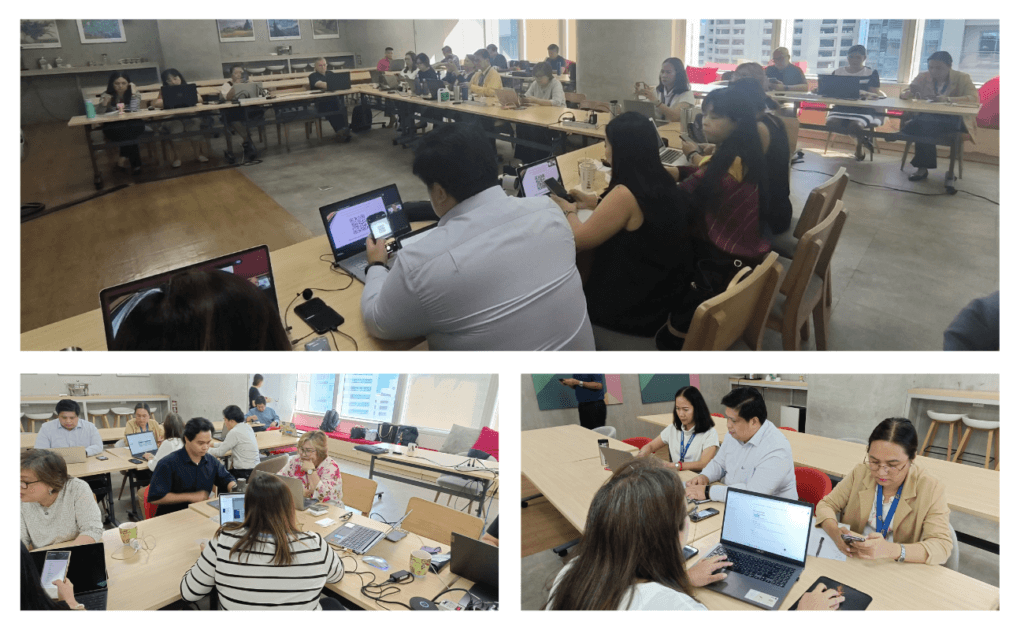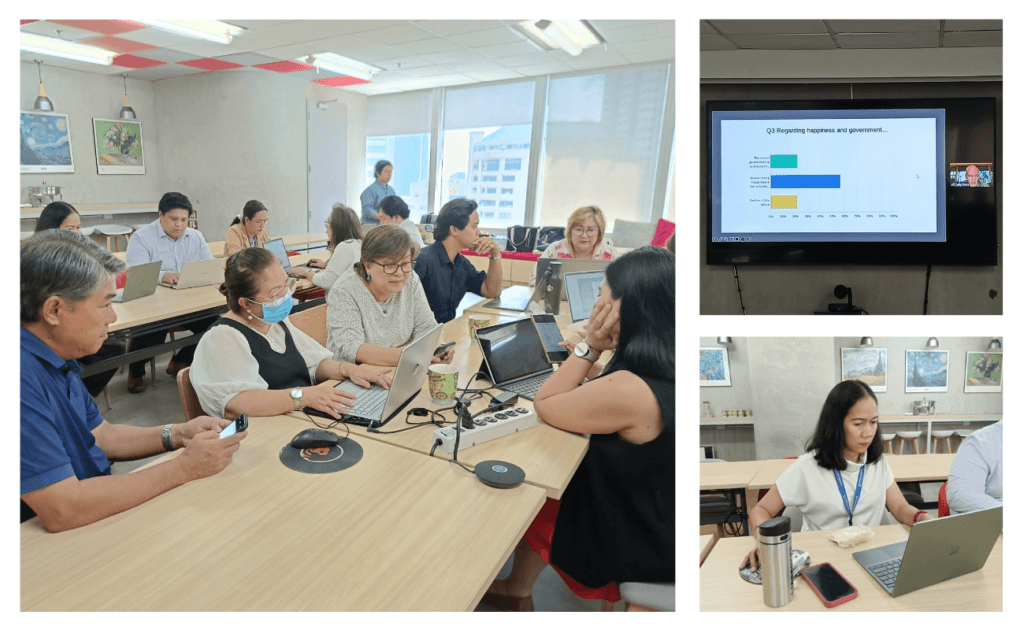I love happy topics—though, paradoxically, my entertainment choices lean toward gory novels and horror movies. Technically, I consider myself a happy person, with a life principle of making things less complicated and enjoying whatever I do, regardless of the situation. So, naturally, I was excited about today’s discussion: Bhutan—a country whose guiding principle is ensuring the happiness of its people.
Led by the ever-insightful Tully Moss (who showed us the amazing view outside his cabin somewhere in North Carolina), our EMBA session explored Bhutan, its values, and debated hydropower versus environmental preservation. It even featured a live conversation with a Bhutanese tour guide. The big question? Can Bhutan sustain happiness as its national policy, or is economic modernization inevitable?

Bhutan’s Brand: Happiness Over Profit
Bhutan is famous for its GNH-first approach, prioritizing well-being over economic growth. While this sounds idyllic, our discussion revealed some cracks in the system. Bhutan’s commitment to happiness is admirable, but can it sustain itself in a rapidly modernizing world?
We explored Bhutan’s four pillars of development:
1. Sustainable and equitable economic growth
2. Environmental preservation
3. Cultural heritage protection
4. Good governance
These principles have shaped Bhutan’s identity, but as 15,000 Bhutanese have left for Australia, it raises the question—are they truly happy at home?
Hydropower vs. Herons: The Great Debate
Bhutan’s Prime Minister faces a tough decision: approve four hydropower plants that could boost the economy or protect heron habitats and preserve Bhutan’s environmental legacy. Our group was split. Some argued that Bhutan should stick to its GNH strategy, keeping nature and tradition intact. Others pointed out that economic development is inevitable, and Bhutan must evolve to meet the needs of its younger population.
It’s a classic dilemma—material wealth vs. emotional well-being. Can Bhutan find a middle ground?
Bhutan’s Economic Reality
After discussing Bhutan’s values and policy choices, our conversation naturally transitioned into a more pragmatic discussion: Can Bhutan’s happiness-first strategy sustain itself economically? Despite its low GDP per capita, Bhutan consistently ranks among the happiest nations. But is happiness enough to ensure long-term stability?
During our group presentations, one team analyzed Bhutan’s economic indicators, comparing them with those of the Philippines. While Bhutan’s carbon-negative status is impressive, its limited private enterprise and reliance on hydropower make it economically vulnerable. This led us to a broader exploration of how different nations strike a balance between economic growth and sustainability.
My group’s presentation also highlighted two standout countries that we admire—Japan and Singapore—chosen from a list of 15 countries and territories. Japan’s industrial prowess, environmental consciousness, and strong sense of discipline were praised, while Singapore was recognized for its economic development, diversity, and commitment to education.
From there, the conversation expanded to global economic predictions. Our group noted that China and the U.S. are expected to dominate the next decade, thanks to their leadership in areas such as manufacturing, AI, healthcare, banking, and cybersecurity. Meanwhile, Bhutan faces a crucial decision—should it embrace modernization or remain a welfare state centered on happiness?
Lessons for John Clements
Bhutan’s approach to happiness sparked an interesting connection—how can we apply similar principles to corporate resilience?
Another group explored how the concepts from “Building Resilience” could be implemented at John Clements, drawing parallels between Bhutan’s commitment to well-being and fostering a healthy, engaged workforce. Their key recommendations included: ✅ Developing a happiness monitor to track employee satisfaction ✅ Optimism training to encourage resilience in the workplace ✅ Flexible work arrangements to reduce stress and improve work-life balance ✅ Strength-based coaching tailored for different generations
While Bhutan’s model may not be perfect, its focus on collective well-being offers valuable lessons for organizations striving to build a resilient and future-ready workforce.
The Native Bhutanese
Our session wrapped up with a lively video call from Tshewang, a Bhutanese tour guide, who gave us a heartfelt glimpse into Bhutan’s way of life. He emphasized that Bhutanese aren’t “brainwashed into happiness”—rather, they are encouraged to seek solutions that honor human dignity, culture, and nature. Tshewang also shared an interesting tidbit about Bhutanese cuisine—while Bhutan doesn’t have an official national dish, its people deeply appreciate organic vegetables and locally sourced ingredients. Their food culture reflects their values: sustainability, simplicity, and harmony with nature.
He also left us with a gold of a quote: “Be happy with what you have, and don’t focus on the materialistic world.” Simple words, yet profoundly challenging in practice. A reminder that happiness isn’t about accumulation—it’s about perspective. This warm and candid conversation was the perfect way to close out our discussion, reinforcing Bhutan’s commitment to happiness as a conscious choice rather than a dictated policy.
Navigating Bhutan’s Future: Happiness, Growth, and Leadership
Bhutan stands at a crossroads—modernization or tradition? The world is watching.
If conversations like these intrigue you, John Clements Leadership Institute offers advanced programs for leaders who want to navigate geopolitical complexities and make informed decisions about global challenges. Whether it’s understanding Bhutan’s unique development model or tackling broader issues in business and society, our EMBA program helps leaders gain the insight they need to shape the future.
Explore the possibilities and elevate your leadership journey today!
Photo by Mike Swigunski on Unsplash






